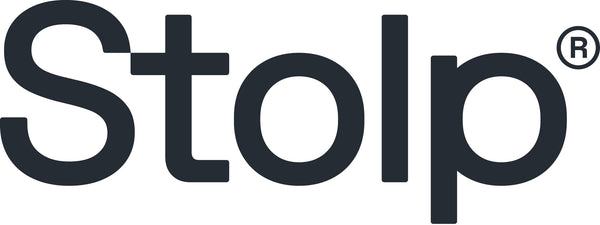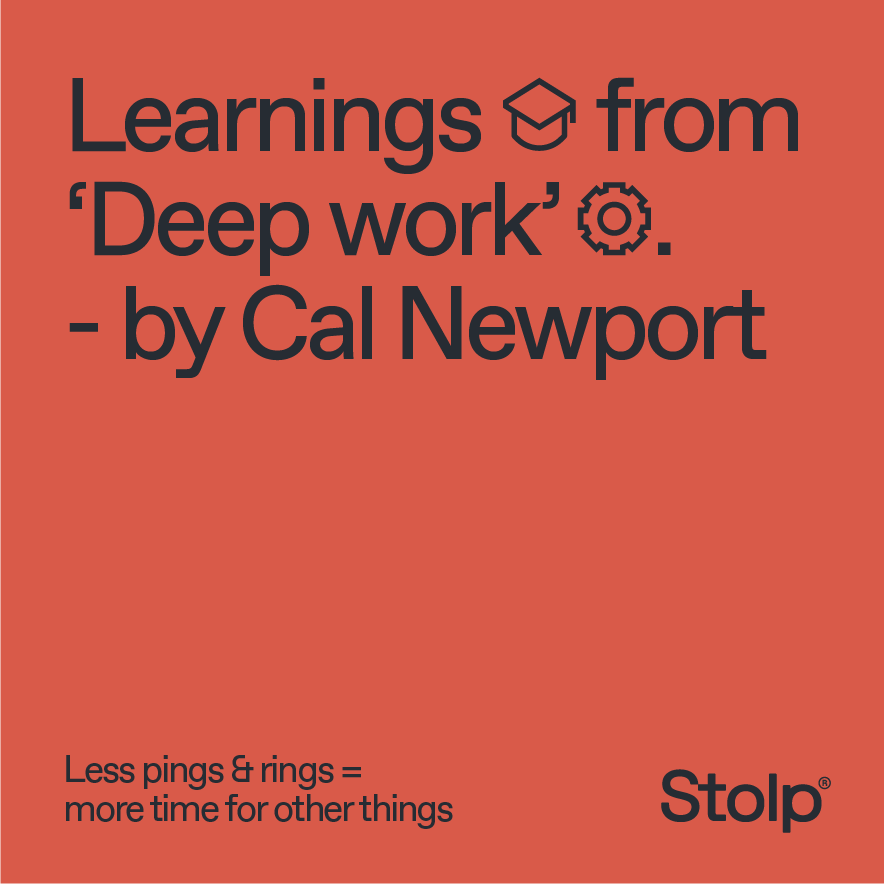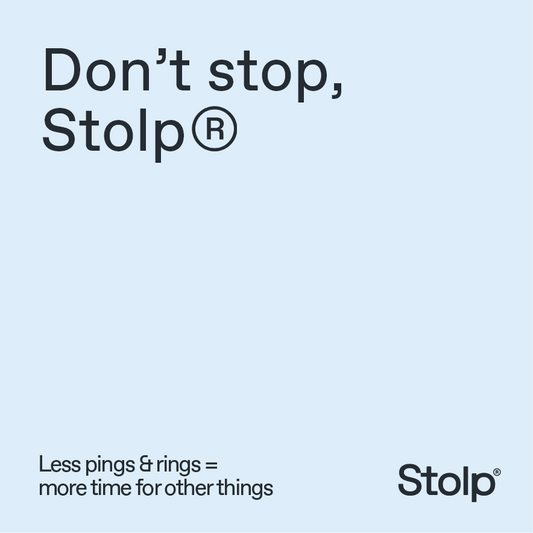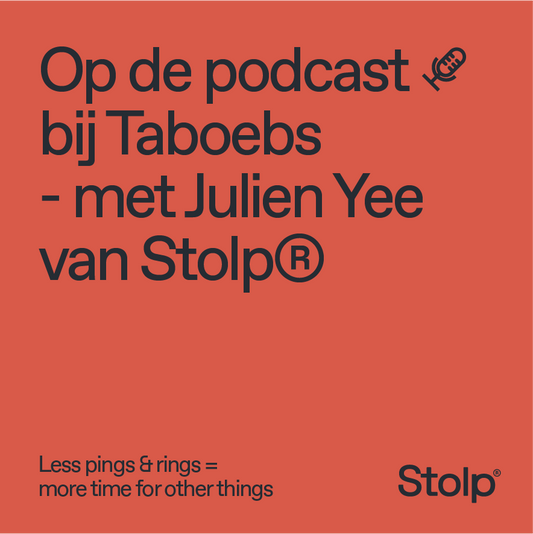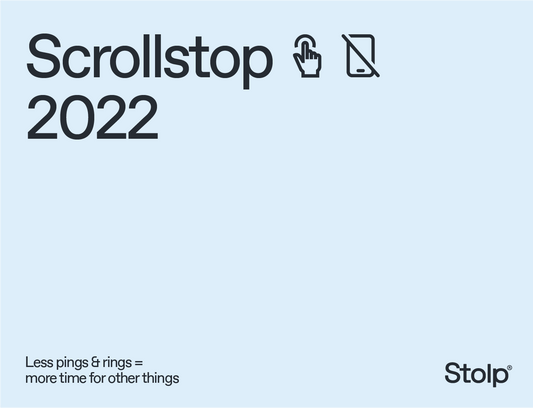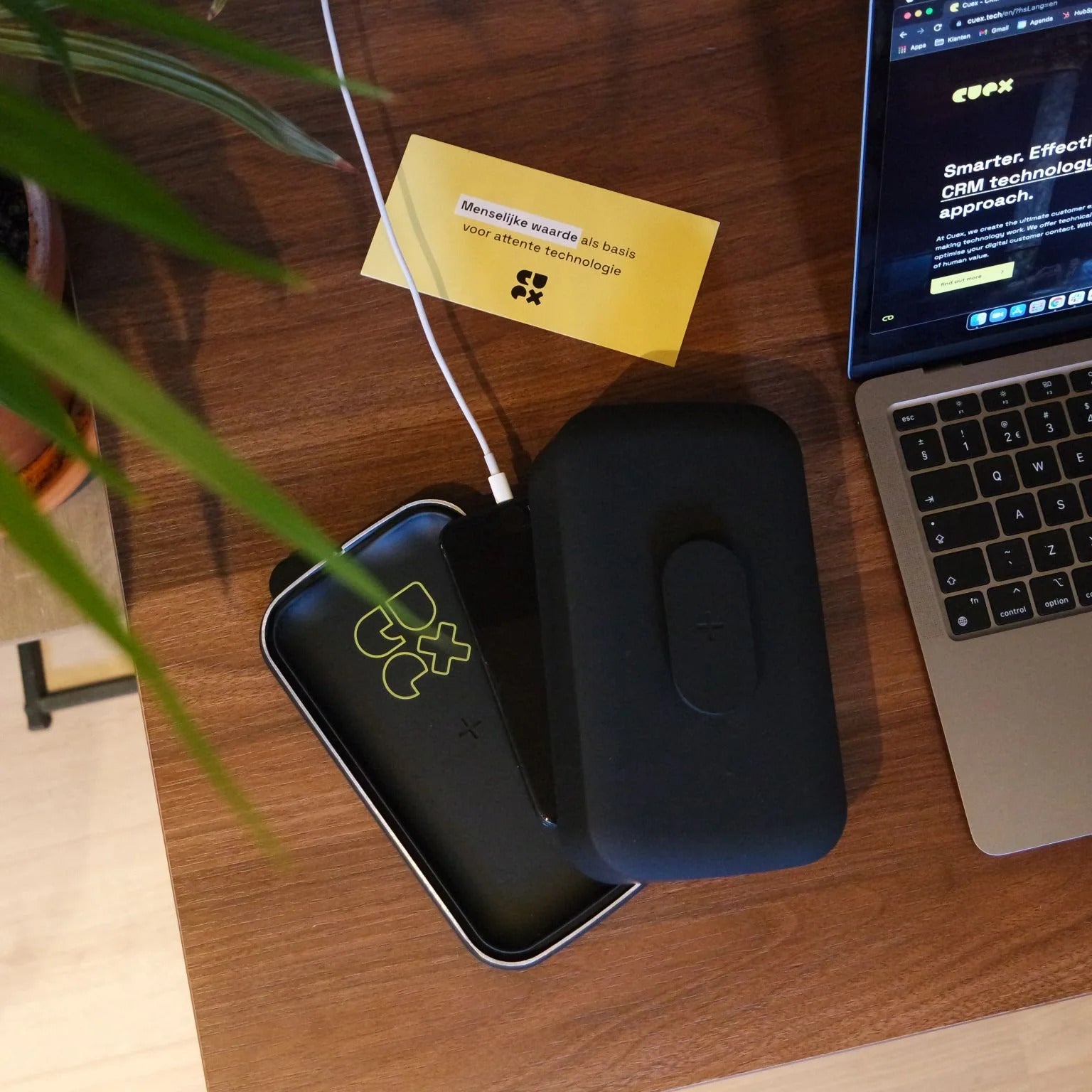Our main learnings from 'Deep Work'
Deep Work is a timely reminder of the value of deep, focused work and the dangers of losing yourself in the shallows of entertainment and distraction.This book is a guide on how to develop the superpower of deep focus on cognitively-demanding tasks in a distracted world. These efforts create new value, improve your skill, and are hard to replicate. It covers many examples from real-world experiences and actionable items make implementing these ideas quite straightforward.
Introduction
The author of 'Deep Work', Cal Newport, is a computer scientist who came up for the idea of the book by observing fellow experts in his field go on these long stretches of uninterrupted time, to solve very hard problems. He found anecdotes about this particular ability to 'work deeply' in many influential figures in history. He assumed that there was a phenomenon at play here which he himself coined 'Deep work'.
The term itself is not used in psychology or any other academic field but rather is Newport's definition of:
"Professional activities performed in a state of distraction-free concentration that push your cognitive capabilities to the limit. These efforts create new value, improve your skill, and are hard to replicate.".
Why deep work matters
3) Ironically, satisfaction at work is easier to enjoy than your free time1) Deep work is a major competitive advantage in the 'New Economy'
The ability to quickly master things and produce at an elite level (speed and quality) are increasingly important to thrive in an increasingly complex, knowledge-based world & economy. These abilities are nurtured through deep work.
2) Typical behaviors in the 21st century don't allow for deep work
We can only get in 'deep work' state distraction-free. However, due to the rise of e-mail and in recent years now also instant messaging, a lot of us are actually never really getting into this mode.
In addition, the author talks about ubiquitous culture of connectivity in the book. It's the expectation that we constantly need to 'check in'. The book mentions a Harvard research study that showed that workers spend around 20 - 25 hours per week checking work e-mail outside the office (hours). And many feel like we need to in fast-paced business environment. They actually ran an experiment with Boston Consulting Group teams asking everyone to skip a day at work, not checking on work even once. Turned out, people became more productive and found more enjoyment in their work.
3) Ironically, satisfaction at work is easier to enjoy than your free time
Newport doesn't argue we should take free time off. Instead he debunks that myth that we need to work and then compensate it with free time to actually find enjoyment in life. Brian scans showed that people who create the space to do deep work were emprically happier at work than in their free time.
When we can get into this uninterrupted flow state at work, where time flies by and we're hyper focused, it becomes a very strong catalyst for happiness and meaningfulness in life.
How to work deeply
Many will wrongly assume that allowing yourself to work deeply is a matter of sheer willpower. But as it turns out, research shows that the desire to do do anything but work is actually our default state, not the exception. Your willpower is a finite ressource and your will is not a manifestation of your character. Instead, to work deeply you have to implement it as part of your day and build rituals around it
Framework to start making 'deep work' part of your days:
- Choose a 'Deep Work' routine that suits your days best.
- Schedule deep work blocks and put them in your calendar
- Decide where and how you’ll perform Deep Work
- Execute your deep work sessions like a business - start with the wildly important
- Implement a shutdown ritual to finish work, let your mind recharge
